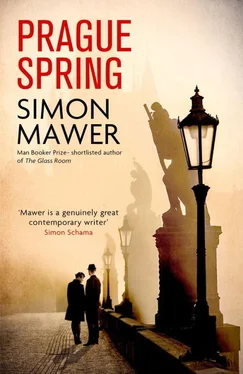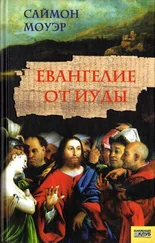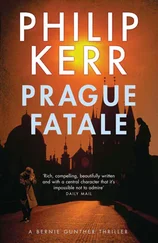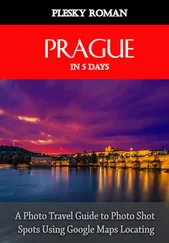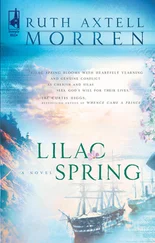His apartment was in a seventeenth-century building tucked in between the river and the great geological mass that supports the Castle. It was edged by cobbled alleys and faced on a square where, it was said, public executions were once held. He unlocked the outside door and went up to his apartment on the first floor. Only the week before, security had been round to sweep the place to see that it was safe, devoid of listening ears. ‘Clean as a whistle,’ the man from security had said. ‘As far as we can see, at any rate. Difficult to get bugs through these old walls, so anything they manage to plant will be superficial, within the plaster, or behind pictures and in light fittings. That mirror, for example. Anyway, at the moment, zilch.’
Zilch? Where had he got that from?
Sam picked up the phone in the hallway and dialled through to the embassy. Dorothy answered his call, as impatient of his irregular habits as ever. ‘I’ve been trying to find you. Mr Whittaker was asking where you were.’
‘And what did you tell him?’
‘That you were out chasing girls.’
‘That I was out at a meeting in the ministry.’
‘That you were out at a meeting in the ministry.’
‘And I’m afraid I’m still tied up.’ He paused. ‘She’s very keen on bondage.’
He could hear the outraged laughter in her voice as he put the phone down. But did Dorothy even know what bondage was? He tried for a moment to imagine her tied up and gagged, but failed. She, surely, would be doing the tying up, and the whipping. Glancing at his watch he went through into the sitting room. From the windows there was that view of the squat Gothic towers which had sat on the end of the bridge like warty toads for the last four hundred years. Heads had been stuck there during the Thirty Years War, a dozen Protestant heads like the victims of a Stalinist purge, perhaps Slansky and his associates in 1952. He put some music on – an obscure piece of Janáček that he had discovered – and sat at his desk to type a memorandum summarising his meeting at the ministry. Three-quarters of an hour had passed before he glanced at his watch again. The damn thing would have to wait. He went to the bathroom, brushed his teeth, combed his hair and adjusted his tie. Five minutes late. He had offered to pick her up from home, but she’d demurred. ‘You’d never find it,’ she said, which perhaps meant, ‘I don’t want you to find it.’ He went out, closing the door carefully behind him and, as always, leaving a tiny scrap of fluff wedged in the jamb.
There was what passed as a crowd on the bridge – tourists from the neighbouring countries, mainly. You heard German and Polish and occasionally the impossibly incomprehensible Magyar. Sometimes Russian. Almost never English, and when you did it was invariably strained through an American voice box.
At one of the statues an imitation Dylan was strumming a guitar and singing Časy se Mění , ‘Times They Are a-Changin’’, which was true enough in so many ways. Halfway along the bridge, at the statue of Saint John of Nepomuk, there she was, just as they had arranged.
She was different, metamorphosed from the casual, slightly dishevelled creature of their first encounter into a moth of various hues – a green, calf-length skirt, a navy blouse that was knotted beneath her bust and would have displayed her navel had she not been wearing a T-shirt underneath. Her face wore a touch of pale lipstick and a smudge of eyeshadow. Her hair was gathered up in a deliberately untidy chignon. They shook hands and he caught a breath of perfume: floral, slightly cloying, and something underneath – her own scent. ‘Do I look all right?’ she asked. ‘Lunch at Barrandov…?’ As though she was unsure of what exactly was involved. He felt a sensation that he had not experienced for a long time, a pulse of anticipation and excitement just above his diaphragm. Somewhere in the further reaches of his brain a small alarm of warning went off.
Talking about each other as you do when you are standing on the brink of intimacy, they walked to his car. She was sharp and blunt at one and the same time, asking probing questions but then driving the nail home with heavy blows: if you are a diplomat, why are you taking me to lunch? What’s in it for you? How is this in the interests of the British government?
Sam laughed. ‘Even a diplomat can have a private life. Although sometimes he has to be careful.’
‘Careful? Why careful? Are you married?’
‘No, not married.’
She turned to him almost accusingly. ‘But you think I am a spy?’
‘Actually, I don’t, but suspicion reigns high on Eastern European postings. Supping with the devil, you need a long spoon.’ He wasn’t sure how to put it in Czech, but she seemed to understand, even made a joke about it. ‘Well, it’s lunch we’re going to now, isn’t it? Not supper. And I’m not the devil.’ She looked at him knowingly as he held the car door open for her. ‘But I’m not an angel either.’
The restaurant was in the south of the city, perched on cliffs overlooking the river. There was an observation tower and projecting terraces like the bridges of a transatlantic liner. Below the terraces, in what might have been an old quarry, a swimming pool gleamed like turquoise set in tarnished silver. Splashes of laughter rose up to the diners. The tables were crowded with people from the film studios nearby – middle-aged men with loud voices, girls in short skirts and beehive hairdos, boys with longish hair and button-down shirts. Dark glasses were worn like a badge of office. The scene might have been in Hollywood, except there were no palm trees, no pink Cadillacs and a fraction of the money. Lenka tried not to gawp, but her eyes were alight with excitement as an obsequious waiter led the way to their table on the edge of the terrace. For almost the first time, she seemed her age, looking around and trying not to stare but spotting the stars nevertheless. ‘There’s Iva Janžurová. And Menzel, that’s Jiří Menzel.’ There were other names that Sam didn’t recognise. Apparently Lenka was something of a film buff, and for a while that is what they talked about. What had Sam seen of Czech film? What did he like? What did he admire? Like and admire were two different things, weren’t they? She was insistent on the point. You could like something such as Ben Hur without admiring it. Or admire A Report on the Party and the Guests without liking it. It was all a matter of the critical faculty, wasn’t it?
Sam was sure it was. He managed to move the conversation away from such matters on to the personal. What might she do once she’d finished her studies? Travel abroad, improve her spoken English, perhaps in London. There were possibilities now the shackles of the past twenty years were being thrown off.
Sam tried to picture her in London. What might she ultimately become? A writer? An academic? A full-time journalist? That kind of thing was imponderable, whereas Sam’s fate was altogether clearer: he would soon enough be Head of Chancery in some forgotten ex-colony, married to Steffie, with two children and a mortgage on a house in Surbiton that would be suitable for the retired ambassador he would inevitably become. Maybe he’d even acquire a K: Sir Samuel Wareham. Terrifying how quickly the options closed down. One moment the world seems your oyster; the next you see it for the mollusc it really is – an octopus that has grabbed you with its tentacles and will not let go.
‘At least now I’d get an exit visa,’ Lenka said. ‘Now things have changed for the better. You see, with my background I was lucky to get to university.’
‘Why lucky?’
Her mouth twisted in distaste. ‘Politics. Now everything may be different, but however hard they try to rewrite it, they can’t change history.’
Читать дальше
